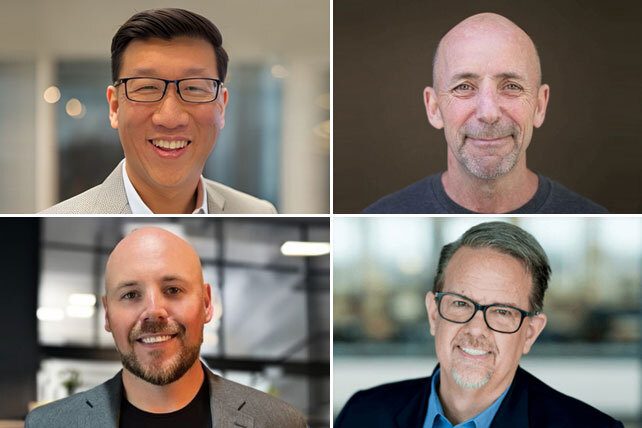Pastors and church leaders who are fearful about artificial intelligence (AI) have good reason to be. But they should not let their valid concerns prevent them from missing the opportunity the church has to shape the cultural conversation on AI.
Such was the consensus of the ministry and technological leaders ChurchLeaders spoke to at Gloo’s second annual AI and the Church Hackathon that took place in Boulder, Colorado, on Sept. 13-15.
“They feel like AI is going to take over the world. It’s going to take their job,” said Kenny Jahng, founder of AiForChurchLeaders.com and editor-in-chief of ChurchTechToday.com. Jahng often speaks at conferences geared toward building resources for pastors and churches. He said church leaders will sit through his entire talk only to tell him during the Q & A session that they are “totally against AI” and “are not going to change their mind.”
The fear that AI will take their jobs is one of the top fears Jahng hears from church leaders. “They also have a fear that it’s not just taking their job personally,” he said, “but it’s going to take over what the church should be.”
What church leaders need to understand, however, is that because AI has been released to the public while in its early stages of development, believers have an opportunity (one the church missed with social media) to address the very dangers about which church leaders are concerned.
Artificial Intelligence: The Church Has a Chance To Influence Culture
Gloo is a leading tech company whose mission is to “release the collective might of the faith ecosystem.” The theme of this year’s hackathon was “Redemptive Technology.” More than 200 attendees from the U.S. and other countries came together on 40 teams to compete for cash prizes by creating AI solutions that will support human flourishing and thriving churches.
RELATED: Gloo Holds 2nd AI & the Church Hackathon, Focusing on ‘Redemptive Technology’
During the hackathon, leaders acknowledged to attendees and to ChurchLeaders that there are very real problems that exist when it comes to AI, including issues with copyright and intellectual property (IP).
Another obvious danger is the creation of deepfakes. These can be insidious, such as when images of real people are superimposed on pornographic content. Or they can be less malicious but still deceptive, such as the example of a recent music video for a song called “Dear Christ” that was supposedly released by Justin Bieber but was actually created by means of AI.
The leaders ChurchLeaders spoke to did not downplay the fears pastors have about AI. Dr. Ed Stetzer, dean of Talbot School of Theology at Biola University and editor-in-chief of Outreach Magazine, said, “I think concerns can be real, but simultaneously, our concern is not going to stop the advancement of AI. So the question is, will we be engaged in that?”
“For example, the earliest and biggest use of the internet was pornography, and the earliest and biggest use of VHS was pornography,” Stetzer continued. “And then Christians said, ‘We’re going to be engaged and involved with it.’ I think it’s better for Christians to be involved and engaged at the front end to help steer some of the conversation.”
“The resistance to AI is fully understandable. I mean, we need to be really careful when we’re dealing with people’s lives, God’s Word, and everything in between,” said Gloo CEO and cofounder Scott Beck. “I think it really is about having good diligence [and] making sure that we’re really thinking it through.”
However, churches should recognize that, whether or not they realize it, they are already using AI in many ways. “Every church is already using AI in spell check,” Beck pointed out. “So AI exists…this is not a new thing.”
“So now it’s a question of how do we start applying it to more and more use cases administratively to make it easier to connect to people, making it easier to be able to build certain assets and resources and content,” he said. “And in that, we have to be careful with every one of those use cases. We just have to say, ‘Ok, how do we do this in a safe, ethical, constructive manner?’”
When asked about the concerns church leaders have about AI, Gloo’s Director of AI Initiatives Steele Billings acknowledged “AI is scary.” He had joined Stetzer earlier that day on the radio show “Ed Stetzer Live” and said a listener had called in and essentially said, “I’m against AI in the church, and I believe that AI is going to be used by the Antichrist to accelerate the persecution of Christians.”

